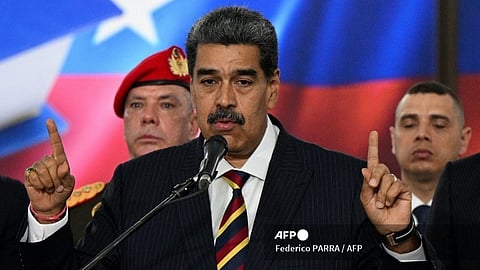
- NEWS
- the EDIT
- COMMENTARY
- BUSINESS
- LIFE
- SHOW
- ACTION
- GLOBAL GOALS
- SNAPS
- DYARYO TIRADA
- MORE

The United States and 10 Latin American countries issued a joint statement on Friday rejecting the certification of President Nicolas Maduro’s 28 July reelection by Venezuela’s Supreme Court. The governments of Argentina, Costa Rica, Chile, Ecuador, the United States, Guatemala, Panama, Paraguay, Peru, Dominican Republic, and Uruguay condemned the court’s ruling, citing a "lack of independence and impartiality." Maduro's controversial reelection has faced widespread rejection both domestically and internationally, further isolating his regime.
Adding to the turmoil, Venezuela’s attorney general, Tarek William Saab, a close ally of Maduro, announced plans to summon opposition presidential candidate Edmundo Gonzalez Urrutia for questioning. Gonzalez Urrutia, who claims to be the true winner of the July election, is under investigation for publishing online voting results that allegedly disprove Maduro’s victory. The opposition asserts that these results show Gonzalez Urrutia, a 74-year-old retired diplomat, won by a significant margin. However, the government claims the opposition unlawfully assumed the powers of the electoral council (CNE) by releasing these results.
The CNE, also aligned with Maduro, had declared him the winner with 52 percent of the vote but failed to provide a detailed breakdown of the results. Despite Maduro's claims of victory, the United States, European Union, several Latin American nations, and multilateral organizations have refused to recognize his win without transparency. The contested election has ignited widespread unrest in Venezuela, with protests leaving 25 people dead, nearly 200 injured, and over 2,400 arrested in the aftermath.
As Venezuela’s political crisis deepens, the international community's rejection of Maduro’s reelection and the impending legal action against Gonzalez Urrutia highlight the growing challenges facing the embattled nation. With tensions rising, the situation remains precarious, threatening further instability in the region.
(Source: Agence France-Presse)
